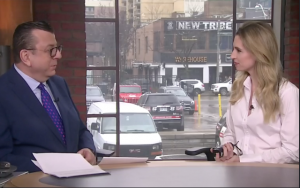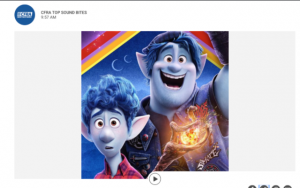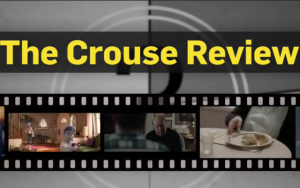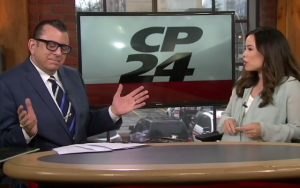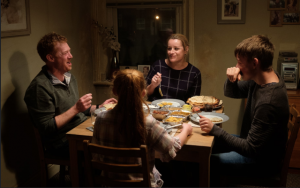 In the future when we look up the word “bleak” in the dictionary there may be a picture of Ken Loach next to the definition. He has spent a career crafting dramatic and dreary portraits of social ills like poverty and homelessness, documenting the trials and tribulations of working-class people. His new film, “Sorry We Missed You,” now on VOD, covers familiar neo-realist ground but its look at the gig economy feels fresh and timely.
In the future when we look up the word “bleak” in the dictionary there may be a picture of Ken Loach next to the definition. He has spent a career crafting dramatic and dreary portraits of social ills like poverty and homelessness, documenting the trials and tribulations of working-class people. His new film, “Sorry We Missed You,” now on VOD, covers familiar neo-realist ground but its look at the gig economy feels fresh and timely.
In modern day Newcastle, Ricky (Kris Hitchen) and Abbie Turner (Debbie Honeywood) and their two kids, the trouble-making Seb (Rhys Stone) and sensitive daughter Liza Jane (Katie Proctor), struggle to get by. With no education and mounting debts Ricky sees a way out of his desperate situation in the form of a parcel delivery franchise. Trouble is, he’ll need to commandeer the family vehicle, the van Abbie uses to get around as a home care worker, to make his new career work.
Eager to impress his supervisor, the tough-as-nails Gavin Maloney (Ross Brewster), and working toward financial independence Ricky loses himself in the job. With fines in place if he is late with deliveries, the pressure builds and soon the family is at a breaking point.
“Sorry We Missed You” sets a new standard for bleak, even for Loach. A powerful, tragic document of the dehumanizing effects of financial strain, it masterfully details how Ricky and Abbie’s family disintegrate under the strain of simply trying to make ends meet. The anguish feels real, aided by naturalistic performances that never condescend to the characters.
Honeywood, in her film debut, remarkable. She gives Abbie the right mix of frustration, fear and feeling to bring her to vivid life. She is the film’s beating heart and it is through her and not Ricky that we come to understand how deep and dire the family’s situation is.
Loach uses a cast of unknowns, a clever way of ensuring the actors don’t bring any baggage from previous roles to the film. Add to that Loach’s documentary style, with natural light and hand held cameras, and you have a movie that feels like an intimate cinéma vérité look at the Turners.
“Sorry We Missed You” is a heartbreaker not simply because we see how Ricky’s want for a better life blows up in his face but because it is about people being taken advantage of while trying to do the right thing.
 Richard sits in on the CFRA Ottawa morning show with host Bill Carroll to talk the new movies coming to VOD and streaming services including Shia LeBeouf’s semi-autobiographical story “Honey Boy,” the eco-doc “Spaceship Earth,” the period dramedy “Emma,” the ripped-from-the-headlines “The Assistant,” the family drama “Ordinary Love,” the horror comedy “Extra ordinary,” the ugly divorce proceedings of “Hope Gap” and the neo-realist look at the gig economy “Sorry We Missed You.”
Richard sits in on the CFRA Ottawa morning show with host Bill Carroll to talk the new movies coming to VOD and streaming services including Shia LeBeouf’s semi-autobiographical story “Honey Boy,” the eco-doc “Spaceship Earth,” the period dramedy “Emma,” the ripped-from-the-headlines “The Assistant,” the family drama “Ordinary Love,” the horror comedy “Extra ordinary,” the ugly divorce proceedings of “Hope Gap” and the neo-realist look at the gig economy “Sorry We Missed You.”
